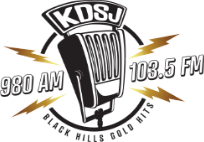With nearly 16 million people losing their jobs as a result of the coronavirus crisis, the stimulus checks for individuals that are a part of the government’s $2.2 trillion stimulus package can’t come soon enough. For many Americans, those checks should start arriving this week.
“We realize that folks are hurting and we certainly don’t want to rain on any parades, but the Better Business Bureau (BBB) is already receiving reports that government imposters are calling and texting people with instructions to fill out personal information in order to receive their stimulus checks. The scammers are asking for Social Security numbers and bank account information” stated, Jim Hegarty, president and CEO of the Regional BBB. “The fact that people are being contacted at all is the tip-off to the rip-off,” stated Hegarty. “The IRS will not reach out to you to for this kind of information, they already have it. BBB is cautioning not to respond to these fake communications, as these checks are being sent out automatically. Any correspondence that may come from the IRS will be by U.S. mail.”
The majority of Americans are not going to have to do anything at all to receive their stimulus money. If you filed a tax return for 2018 or 2019 and included your direct deposit information, no further action is needed. This includes seniors and retirees.
If you did not file taxes in recent years, or didn’t sign up for direct deposit on recent tax returns, you can go to https://www.irs.gov/coronavirus/economic-impact-payments for more information.
Other scam reports to BBB involving stimulus check payments include text messages saying that your stimulus is pending your acceptance – but you must confirm by a specific date, and text messages stating that if you confirm your bank account information (by submitting it through a “phishing” link) and pay $50, you can get your stimulus check immediately.
Also reported is a Facebook message from a “friend” that asks you to call a specified number and give your Social Security number so you can find out when you’ll get your government relief check. The woman who reported this scam said several of her church members had told her about it thinking it was real.
Scams to watch out for in the coming days and weeks:
- Fake checks started as soon as the stimulus was announced. Watch out for checks written in odd amounts, including cents, or any check that requires you to verify receipt online or by calling a number.
- Social media, phone or text messages that claim to be from the IRS or the Treasury Department or any government agency, trying to get in touch with you regarding your stimulus check. The US Government does not call, use social media or texting to contact you.
- Government verification of your personal information by sending you a link or a website to click on, is a fraud. The government already has your information (such as Social Security number) and does not do this. It’s a fake.
- Processing fees to speed up your check are fake. You cannot get your money quicker by answering these sorts of requests even though they claim to be from the IRS or another government agency. There is no way to “speed up” your payment by paying a “processing fee.”
Never forget these tips:
- The government will never ask you to pay anything upfront in order to receive money. To get your stimulus check you will not have to pay any fee whatsoever.
- You don’t have to provide any personal information to the government in order to receive payment. They will use your tax return information for a direct deposit. They will not ask for your Social Security number, bank account number or credit card number.
- Never give out your personal information to someone you do not know. Scammers will call and try to get you to.
- Official sounding names are easily faked. Sound-alikes and email and snail mail look-alikes are fakes. Scammers try to fool you by imitating official agencies.
- Phone numbers on your Caller ID are easily faked. Don’t trust what your phone tells you about the caller.
If you have questions regarding suspicious calls, emails, mailings or texts about your stimulus check payment, contact your BBB at 800-649-6814 or visit our website at bbb.org.
